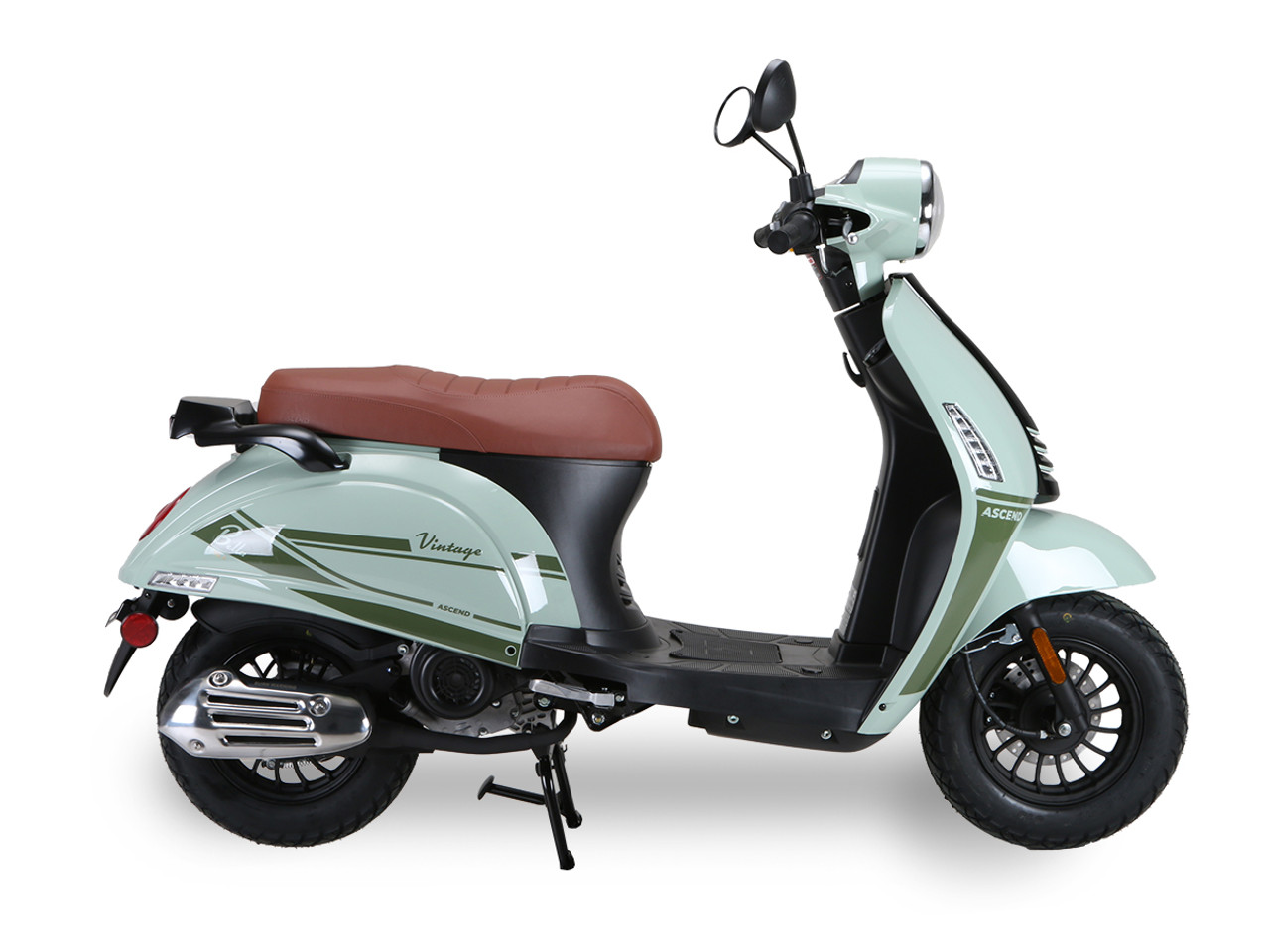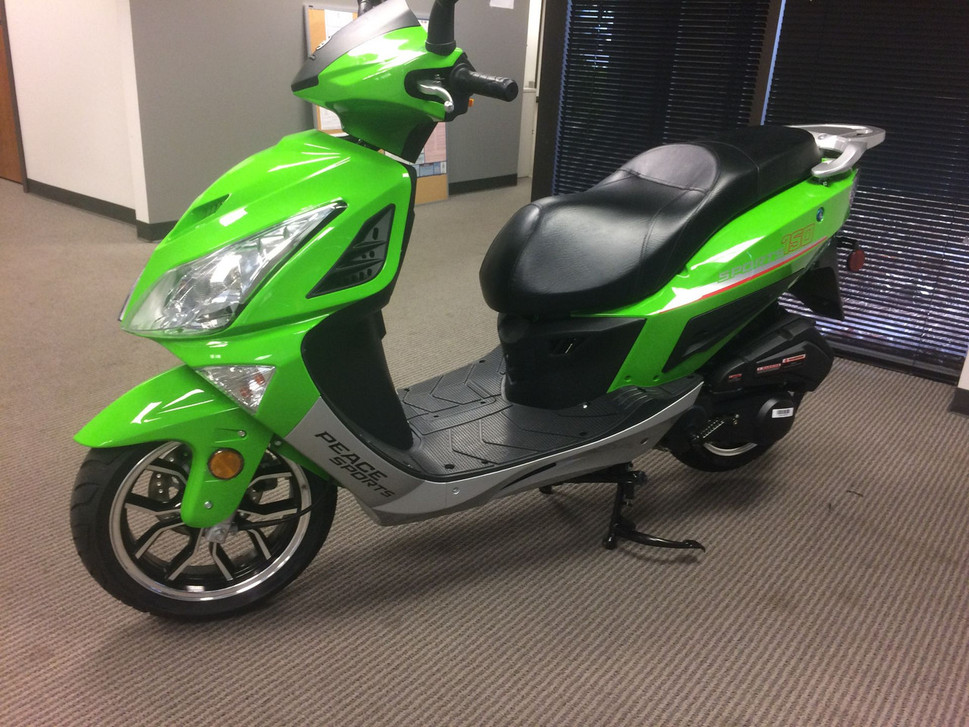If
you're in the market for a gas scooter for sale or already own one, you
may be wondering, "What kind of gas does a scooter take?" Understanding
the fuel requirements of your scooter is crucial for optimal
performance, longevity, and fuel efficiency.

Types of Gas for Scooters
Regular Unleaded Gasoline (87 Octane): The majority of gas scooters for sale are designed to run on regular unleaded gasoline with an octane rating of 87. This is the most common type of fuel used in scooters and provides sufficient combustion for engine operation.
Premium Unleaded Gasoline (91 Octane or Higher): Some high-performance or luxury scooters may recommend or require premium unleaded gasoline with an octane rating of 91 or higher. Premium fuel can offer improved engine performance and fuel efficiency in certain scooter models.
Factors to Consider When Choosing Gas for Your Scooter
Manufacturer's Recommendations: Always refer to your scooter's owner's manual or manufacturer's recommendations regarding the type of gas to use. Following the prescribed fuel type ensures optimal engine performance and avoids potential damage.
Octane Rating:
The octane rating indicates the fuel's resistance to engine knocking or
pinging. Choose the appropriate octane level based on your scooter's
requirements. Using higher octane fuel than recommended may not provide
additional benefits and can be unnecessary.

Ethanol Content: Be aware of the ethanol content in gasoline, as some scooters may not be compatible with high ethanol blends (such as E15 or E85). Stick to gasoline with lower ethanol content for optimal compatibility and engine health.
Fuel Quality: Purchase gasoline from reputable gas stations to ensure fuel quality and avoid contaminants that can harm your scooter's engine. Low-quality fuel or fuel with additives may cause issues over time.
Maintenance Tips for Gas Scooters
Regular Fuel System Inspections: Periodically inspect your scooter's fuel system, including the fuel filter and lines, for any signs of damage or clogs. Clean or replace components as needed to maintain fuel efficiency and engine performance.
Fuel Stabilizer for Storage: If you plan to store your scooter for an extended period, consider using a fuel stabilizer to prevent fuel degradation and varnish buildup in the fuel system. Follow the manufacturer's instructions for proper usage.
Avoiding Fuel Contamination: Keep gasoline containers and fuel tanks clean to prevent contamination from dirt, water, or debris. Use a clean funnel when refueling to minimize the risk of introducing contaminants into the fuel system.
Regular Engine Tune-Ups: Schedule regular engine tune-ups and maintenance checks with a qualified mechanic to ensure your scooter's engine is running efficiently and to address any fuel-related issues promptly.
By understanding the type of gas your scooter requires, following manufacturer recommendations, and practicing proper maintenance, you can enjoy reliable performance and longevity from your gas-powered scooter. Always prioritize safety and compliance with local regulations when handling and storing gasoline for your scooter.

